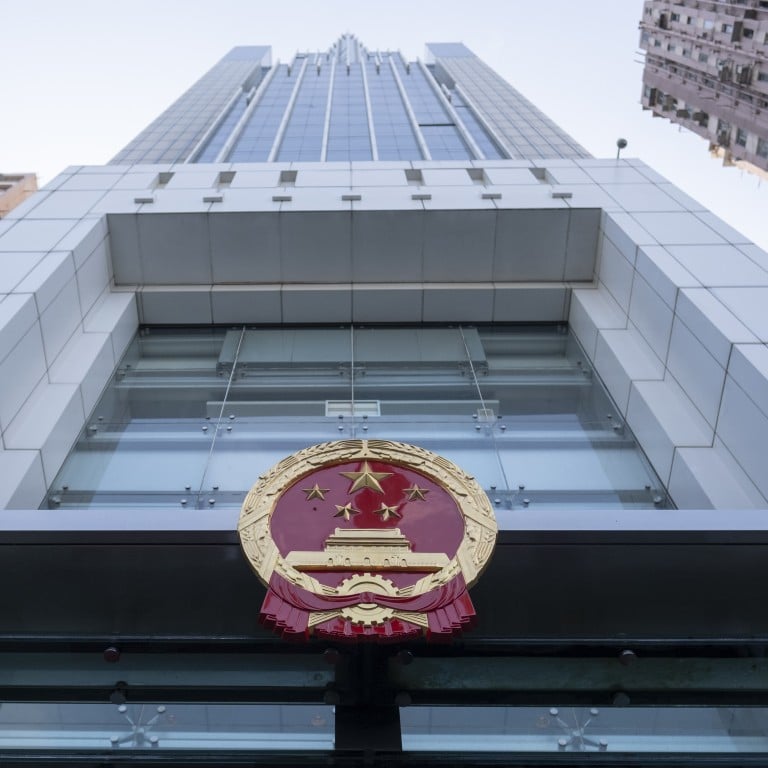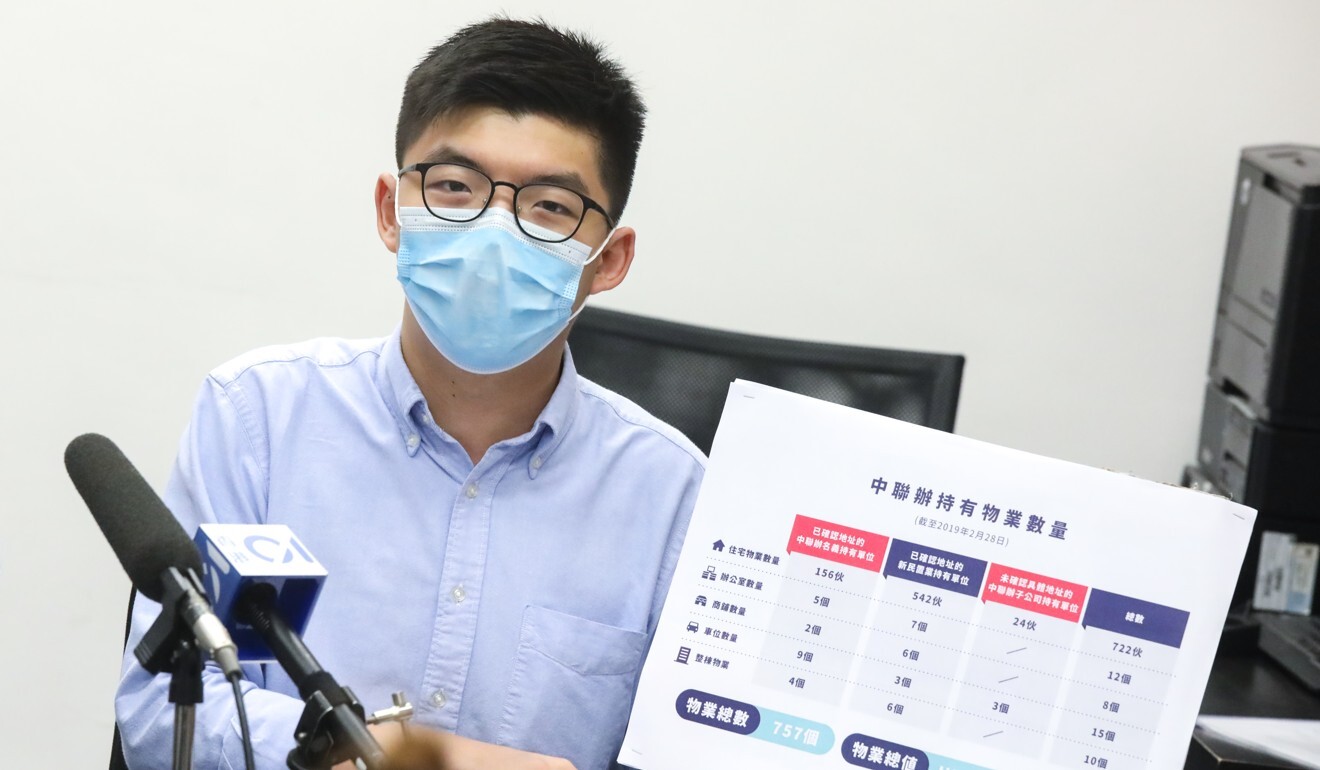
Beijing liaison office in Hong Kong ‘has HK$3.4 billion property empire’ in the city: Demosisto report
- Mainland China agency has 757 properties in the city with 130 flats bought since 2014, according to research from pro-democracy group
- Joshua Wong says data shows liaison office’s expansion across city, while lawmaker highlights its need to house staff locally
Beijing’s liaison office in Hong Kong has a HK$3.4 billion property portfolio in the city, according to research based on 2019 data from pro-democracy activists who said it offered a glimpse into the expansion of the central government’s local operation.
According to the report, about 400 of the residences were bought before the 1997 handover of the city from British to Chinese sovereignty, when the Xinhua News Agency’s Hong Kong base was the de facto representative office of Beijing in the colonial era.
Hong Kong government’s flip-flopping in Beijing power row labelled ‘betrayal’
About 180 were snapped up between 1998 and 2014, with another 130 added to the portfolio between 2015 and 2019, the report read.
Revealing their analysis at a press conference, the group said the portfolio was made up of 722 flats, 12 offices, eight commercial sites, 10 entire buildings and 15 car parks. They said they used land and company registries and property-transaction platforms for their research.
They found that nearly 80 per cent of the residential flats were owned by Newman Investment Company Limited, which was set up in 1972 and whose shareholders and board directors include liaison officials.
The vast majority of the remaining properties – some 150 residences, two commercial premises, five offices, nine car parks, and four whole buildings – were bought directly by the liaison office, the study found.
Local media, including the Post, previously estimated the liaison office owned about 300 to 500 residential properties in Hong Kong.
“Beijing has scaled up its property empire after the ‘umbrella movement’ in 2014, reaching out its tentacles from Hong Kong Island to other places of the city,” Wong said, referring to the large-scale show of civil disobedience that blocked part of the city’s financial district for 79 days over universal suffrage.
He said Demosisto would submit its findings to the US Department of State, the Congressional-Executive Commission on China and Britain’s All-Party Parliamentary Group Hong Kong.

Pro-establishment lawmaker Regina Ip Lau Suk-yee, chairwoman of the New People’s Party, said she believed most of the residences were to house liaison office employees.
“When rents are so expensive in Hong Kong, I don't see any problem for the liaison office to purchase flats for its employees to live in,” she said.
“It might have bought more units in recent years, as it expected properties to become more and more costly.”
The report quoted a government response as saying Beijing agencies in Hong Kong and their subsidiaries were exempted from HK$124 million of stamp duty over the past five years of property purchases.
According to the Stamp Duty Ordinance, the central government, or any “incorporated public officer or any person acting in his capacity as a public officer shall not be liable for the payment of stamp duty”.
Nathan Law Kwun-chung, co-founder of Demosisto, called the regulation a loophole that encouraged the Beijing agency to buyup property in the city.
“We don’t know if the liaison office used the properties for investment or, as what they said earlier, for staff quarters,” he said.
Gridlock: pro-Beijing bloc’s inaction in stalled Legco raises eyebrows
The group estimated at least 722 employees worked for the liaison office in Hong Kong based on the number of flats in the portfolio.
The report said all the properties had been identified with exact addresses, except 23 flats and three car parks.
Pro-government lawmaker Abraham Razack, who represents the real estate sector, said he believed the stamp duty exemption applied to the liaison office because it was a department under the central government.
Demosisto’s report was published amid a row over the role of the liaison office and the Hong Kong and Macau Affairs Office in the city.
The two agencies said they had a right to comment on the city’s affairs without being accused by opposition lawmakers of interfering, in a dispute arising from the gridlocking of business at the Legislative Council.
The report said most of the flats were located on Hong Kong’s islands, while about 200 were in the Central and Western district, where the liaison office is located, with a further 300 in Wan Chai.
Hong Kong officials ‘may not grasp’ how Beijing bodies overseeing the city work
The Post previously reported the liaison office had in February last year paid HK$247.5 million, through Newman Investment, for 20 flats at the Grand Central complex, according to the Land Registry. The office later insisted the properties were used as staff quarters, and denied suggestions it had intended to resell them for a quick profit.
According to the latest company registry information, Newman Investment’s office is registered at a residential flat in Sai Wan owned by the liaison office, while its company records are kept at the liaison office building at 160 Connaught Road West in Sai Wan.
In 2019, five Newman directors and shareholders appeared to have the same names as the officials of the liaison office.
The Post has contacted the liaison office for comment.
Additional reporting by Sum Lok-kei
